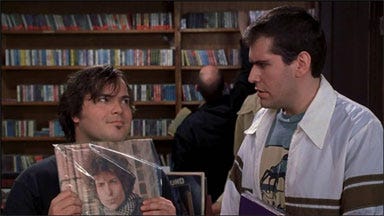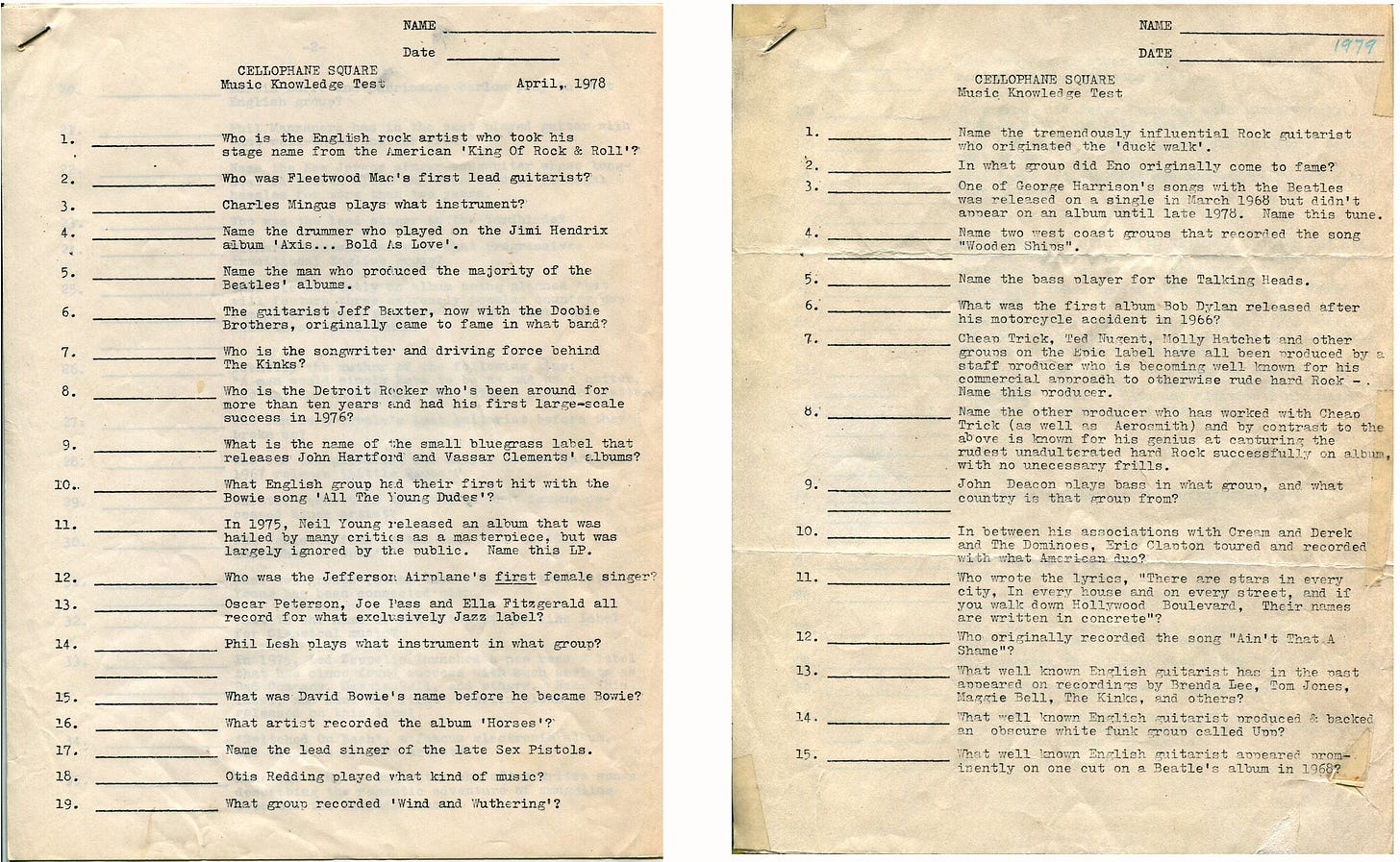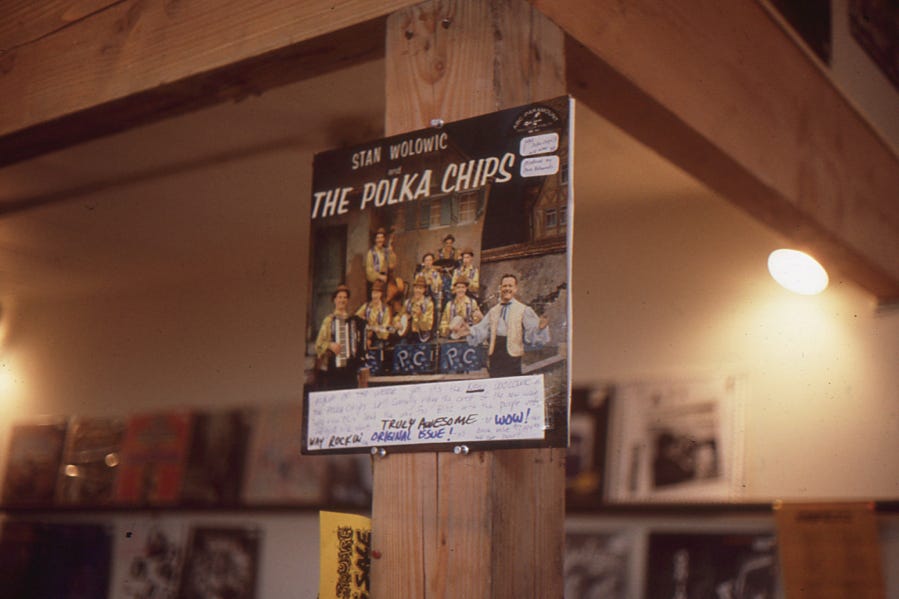The Record Store Years 18) The Pitfalls of Hiring Fanatics Pt. 1: The Music Knowledge Test
A memoir of 25 years (1975-2000) spent working in the world of records & music in Seattle, with occasional side trips into writings on Led Zeppelin and other adventures from my musical life.
When the owners originally opened Cellophane Square they started with a few foundational policies that would come to define the record stores that people grew to love. The most important one was undoubtedly honesty (see TRSY chapter 15, ‘The Tao of CS’) – but perhaps equally important was the policy of hiring real music lovers to work in the stores and striving for a variety of tastes and areas of knowledge in the staff.
To this end, there was a ‘music knowledge test’ that accompanied each job application for the purpose of weeding out the casual music fan and zeroing in on the more serious aficionado who could really bring something to the mix. The test had been around for a while when I applied in late ’75, and it had about 20 questions on a variety of music genres. I don’t remember specifically what any of them were, but for me they were easy – I think I missed a few on jazz and country, but pretty much aced it otherwise.
Later on, as I became store manager and started hiring people who approached or surpassed my own level of fanaticism, the music test got much harder. In fact, I’m a little embarrassed as I think back because in a way it represents the roots of the classic ‘record store snob employee,’ immortalized by Jack Black in the film High Fidelity. As manager I did my best to make sure everybody was impartial and un-snobbish with customers, but for the poor soul who had hopes of actually working with us lofty Record Store Godhead Storedudes (and Dude-ettes), you first had to run the gauntlet of the Music Knowledge Test.
Sample question from the test when I took it in 1975: What was the name of the first Jimi Hendrix Experience album? (answer: Are You Experienced?).
Sample question from the test by 1978: Who was the Epic Records staff producer who produced Cheap Trick’s In Color album? (answer: who the fuck cares?!).
Actually, the answer is Tom Werman, who was a respected rock producer known in the industry but virtually invisible to the world at large. We were having fun with the test at the time but in hindsight I realize it really got over the top, and broadcasted an air of exclusivity that may not have done us much good in the big picture.
None the less, the music test became somewhat legendary, and people who had no intention of applying for a job would come in just to fill it out and then come back to ask us how they did on it. We got rid of it eventually, but the policy of hiring true music lovers remained intact pretty much until the end and was always one of the things that made the stores great.
One of the standard store practices from very early on was writing recommendations or ‘hypes’ on albums to help sell them, and the staff was always encouraged to do this if one of their personal favorites came into the store – an early version of the ‘Staff Picks’ endcap or display you see in most record stores today. Hypes took varying forms over the years, initially handwritten on 3-by-5-inch notepaper and taped to the cover, later printed out from computers and most amusingly, often written in one or two-word phrases right on the price tag of the album.
Before CDs and the introduction of mechanical price guns to the stores, all the records were priced with blank white rectangular tags on the upper righthand corner. The tags were approximately an inch and a half wide by three quarters of an inch tall, and after the price and inventory code were hand-written on the tag, there was just enough room left to squeeze in a short comment like “awesome!” or “their best LP!” Customers loved this, and the staff was always trying to come up with new superlatives to fit on a tag. I still occasionally run across an album at a store or in someone’s collection with an old Cellophane tag that has ‘Rockin!’ written on it in my hand.
NEXT: The Pitfalls of Hiring Fanatics Pt. 2: In-Store Play
Below: An early ‘hype’ making fun of our own enthusiasm for hypes – this LP was one of those kitschy, unsellable melts. Original issue!







I missed the "music test" years but remember being grilled about my musical tastes in my interview--conducted by you, Steve, and Scott while Eric watched the front counter. You asked me if I had a lot of records and I said, "Yeah, quite a few." "How many?" "Oh, about 25." All three of you busted up laughing. "That's not a lot of records," you said.
So of course I immediately made Ed take both quizzes to see if he would've been a potential hire. He missed only four questions on the 1978 quiz and five on the 1979 quiz. (Record label questions 40 years later are a bit tough!) I hired him. I hope that's okay!